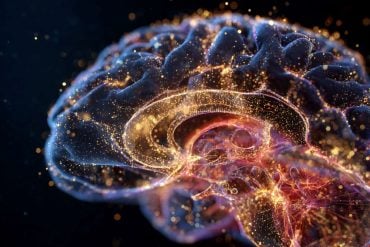Summary: Music has long been used to aid memory in conditions like Alzheimer’s, but how it works on the brain has remained unclear. A new study finds that the emotional intensity a person feels when listening to music determines which aspects of a memory are strengthened.
Stronger emotional reactions enhanced memory for the overall gist of an experience, while moderate emotional responses helped people recall more specific details. This suggests that music’s impact on memory is not universal and may require personalized strategies for therapeutic use.
Key Facts:
- Emotion Matters: The intensity of emotional response to music shapes whether people recall general or detailed aspects of a memory.
- Not One-Size-Fits-All: Familiarity, mood (happy/sad), and song type did not predict memory enhancement—individual reactions did.
- Personalized Potential: Tailoring musical interventions based on emotional response may improve outcomes for memory-related disorders.
Source: SfN
Music improves mood and memory to such an extent that treatment strategies for diseases like Alzheimer’s or dementia sometimes incorporate music. But how music boosts memory remains unclear.
In a new Journal of Neuroscience paper, Kayla Clark, from Rice University, and Stephanie Leal, from University of California, Los Angeles, explored what features of music improve memory in humans.
After study participants viewed images of everyday experiences, the researchers played music and manipulated its features. Some features—like whether songs were happy or sad, or song familiarity—had no bearing on how well participants remembered the images.
However, individual differences in the strength of emotional responses elicited from music did impact memory recall.
Of note, this memory boosting effect was specific to different aspects of memory.
Says Clark, “The more emotional that people became from the music, the more they remembered the gist of a previous event. But people who had more moderate emotional responses to music remembered more details of previous events.”
According to the authors, their work points to the specificity with which music boosts aspects of memory.
The authors emphasize that musical interventions for improving memory in patients may need to be personalized since music does not uniformly enhance memory.
About this memory and music research news
Author: SfN Media
Source: SfN
Contact: SfN Media – SfN
Image: The image is credited to Neuroscience News
Original Research: Closed access.
“Fine-Tuning the Details: Post-Encoding Music Differentially Impacts General and Detailed Memory” by Kayla Clark et al. Journal of Neuroscience
Abstract
Fine-Tuning the Details: Post-Encoding Music Differentially Impacts General and Detailed Memory
Music can effectively induce emotional arousal, which is associated with the release of stress hormones that are important for the emotional modulation of memory.
Thus, music may serve as a powerful modulator of memory and mood, making it a promising therapeutic tool for memory and mood disorders such as Alzheimer’s disease or depression.
However, music’s impact on memory depends on its features, timing, and ability to elicit emotional arousal.
In the current study, we manipulated various features of music played during post-encoding memory consolidation to elicit emotional arousal and impact subsequent memory in men and women.
We found that larger increases and moderate decreases in post-encoding music-induced emotional arousal from baseline resulted in gist vs. detail trade-offs in memory, with improved general memory but impaired detailed memory, while moderate increases in arousal from baseline corresponded to improved detailed memory, but impaired general memory.
Importantly, relative to controls, music-induced emotional arousal demonstrated unique impacts on detailed memory that are crucial in supporting episodic memory.
These findings suggest that music intervention does not uniformly impact memory and has important implications in developing personalized music-related interventions for those with memory and mood impairments.







